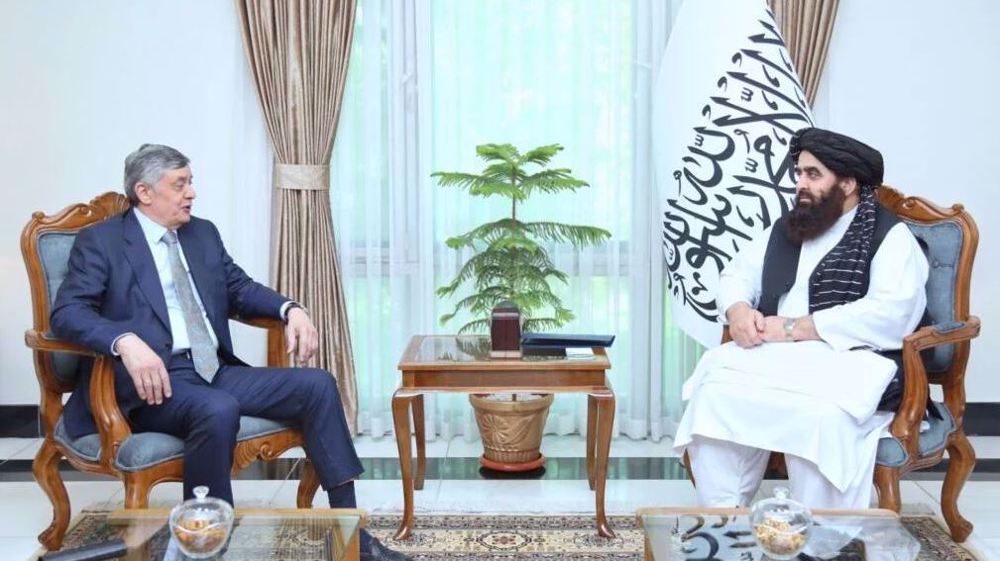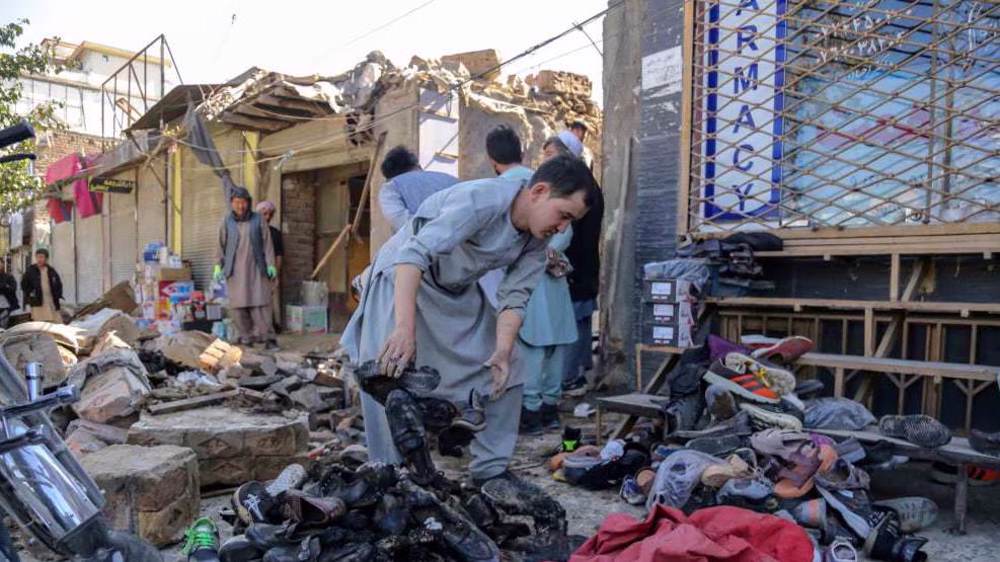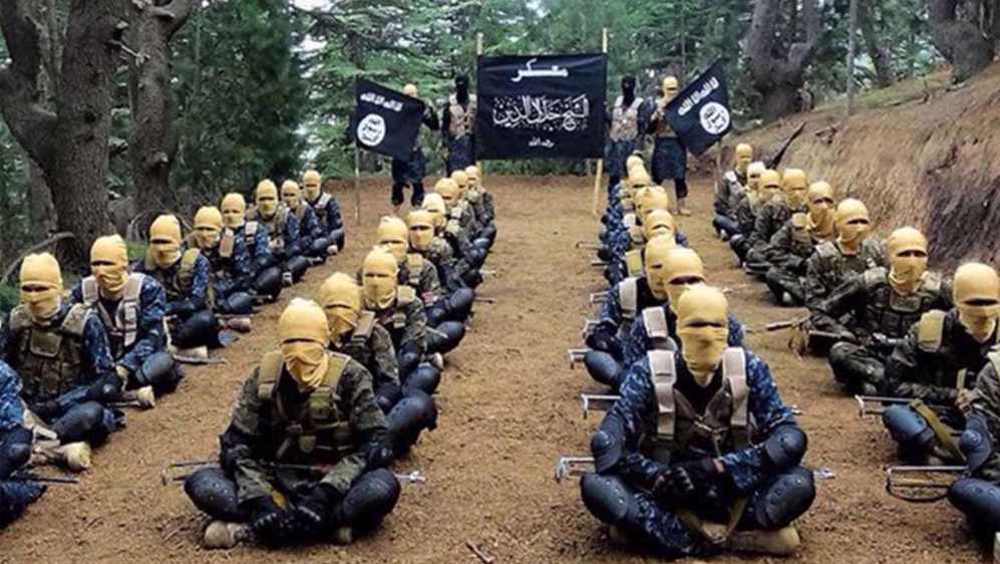Dozens killed in Daesh attacks in eastern Afghanistan
Dozens have been killed in eastern Afghanistan as the Daesh Takfiri group launches fresh attacks on civilians and security forces.
Nangarhar provincial governor, Saleem Khan Kunduzi, said in a statement on Sunday that at least a dozen Afghan security forces and civilians were killed in attacks by Daesh in the province over the past three days.
“They kill people regardless of whether they're a child or a woman. They burn down madrasas, mosques and schools,” Kunduzi said, adding, “There is no doubt that Daesh [terrorists] do not respect anyone.”
Other officials said more than 100 Daesh militants were also killed in the intense fighting in Nangarhar, although they could not provide an exact figure. They said five civilians were reported kidnapped in Nangarhar while as many as 25 homes had been burned down in Kot district.
Kunduzi placed the number of Daesh militants killed as high as 36, saying fighting began late on Friday in Rodat district after a contingent of Daesh militants attacked police check posts.
Provincial police chief, Zarawar Zahid, said fierce fighting was continuing in the area with hundreds of police and soldiers engaged with the militants. He said reinforcements were on the way.
Last week, Iran’s mission to the United Nations expressed concern over a rise in the activities of the Takfiri Daesh terrorist group in neighboring Afghanistan.
Gholam-Hossein Dehqani, Iran’s deputy ambassador to the UN, called attention to a United Nations report which has found that armed conflict in Afghanistan currently stands at its highest level since 2001.

“Afghanistan continues to face major security, political, and economic challenges,” Dehqani told a UN Security Council session on Tuesday.
He also voiced Tehran’s concern about the growth of Daesh in Afghanistan as well as the emergence there of affiliated outfits like Daesh-Khorasan, the so-called “Islamic Movement of Uzbekistan,” and “East Turkestan Islamic Movement.”
Daesh has reportedly managed to establish connections with Taliban's splinter groups, especially those believed to be discontent with changes in Taliban’s leadership.
The Takfiri group has also enjoyed defections from al-Qaeda in Afghanistan although the latter's leader, Ayman al-Zawahiri, has pledged allegiance to Taliban's new leader, Haibatullah Akhundzada.
Officials in the Afghan government have blamed local leaders in east of the country for the surge in Daesh militancy.
“They should be accountable for every drop of blood that has been shed in Nangarhar so it becomes a lesson to other officials,” the head of Afghanistan's civil society federation, Sediq Ansari, said last Sunday, accusing the local leaders of being negligent in the face of Daesh threats.
Iran to launch ‘new, advanced’ centrifuges in response to IAEA resolution: AEOI
Yemen fires hypersonic missile at Israeli airbase
VIDEO | New Delhi chokes under toxic smog as air quality remains at hazardous levels
VIDEO | Press TV's news headlines
VIDEO | ICC's arrest warrant for Netanyahu to worry Western politicians: Former British diplomat
Iranians protest against Israel after Netanyahu ICC warrant
Germany undecided on complying with ICC arrest warrants for Israeli war criminals
VIDEO | Former FBI agent criticizes US Congress for 'outright corruption'













 This makes it easy to access the Press TV website
This makes it easy to access the Press TV website